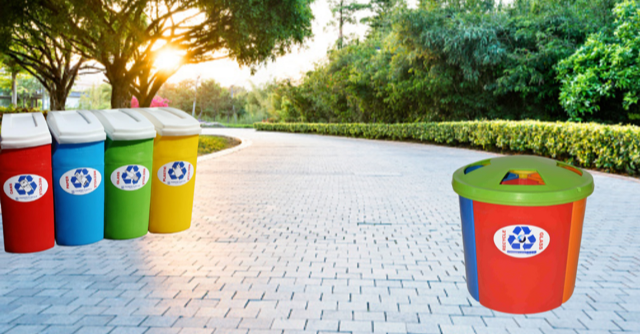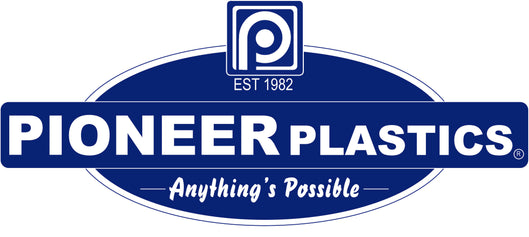
What You Should Know About Plastic Recycling
How harmful is plastic to the environment, and is plastic recycling an eco-friendly solution?
Here are a few interesting facts about the use of plastic and the environmental impact of recycling.
Plastic and The Environment
It is true that plastic takes a long time to decompose, is not bio-degradable and uses fossil fuels in the manufacturing process. Then, why does the use of plastic not just come to a grinding halt?
You may be surprised to learn that there are many applications where plastic is a superior material choice for health, safety, and economic sustainability.
Water storage in agriculture is a good example. Where farmers need to keep thousands of litres of water at a time—steel, glass, even bamboo are hardly viable alternatives. Steel rusts, glass is fragile, plant-based materials are porous and would degrade.
Polyethylene plastic is odour, light, weather and corrosion-resistant. It is also a poor heat and electricity conductor. Whichever way you look at it, from non-contamination to affordability, plastic makes the most sense.
The good news is that one tank can be used for decades—and, afterwards, the plastic can be recycled!
As citizens of earth, we should all strive towards recycling because it dramatically reduces plastic manufacturing's carbon footprint.
The Recyclability of Different Types of Plastic
Understanding which types of plastic can be recycled enables wise choices about what to use in various scenarios.
Seven Types of Plastic and Their Recyclability
|
RECYCLING NUMBER |
ABBREVIATION |
POLYMER NAME |
RECYCLABLE |
|
1 |
PETE or PET |
Polyethylene Terephthalate |
Yes |
|
2 |
HDPE |
High-Density Polyethylene |
Yes |
|
3 |
PVC |
Polyvinyl Chloride |
Yes - but call your recycler |
|
4 |
LDPE |
Low-Density Polyethylene |
Yes - but call your recycler |
|
5 |
PP |
Polypropylene |
Yes |
|
6 |
PS |
Polystyrene or Styrofoam |
Yes - but contaminated Polystyrene can be a problem |
|
7 |
N/A |
Miscellaneous Plastics |
Not usually – call your recycler to verify |
Single-Use versus Lifetime-Use Plastic
Plastics that aren’t recyclable pose the biggest threat to the environment. Here, alternatives can and should be used. The culprits are most often "single-use" plastics, but that term is misleading.
Single-use was coined to refer to plastic products that are used once and then thrown away—but disposal is more accurate. The single-use plastics that devastate the environment are things like Styrofoam coffee cups that can't be recycled. They end up in a landfill with the potential to leach dangerous chemicals.
While most PET water bottles can be recycled, they don't. That's why the keyword should be "reusable" in the case of food and beverage packaging.
Did you know that coffee shops will gladly fill your reusable travel mug?
Fortunately, polyethylene plastic (which is what we use) is 100% recyclable. Products made with polyethylene are non-disposable or "lifetime-use" plastic. Non-disposal is, of course, more widely used. They are manufactured to be used over and over again (like jerry cans and cooler boxes).
Interesting Plastic Recycling Facts: Energy-Saving, Eco-Friendliness and Sustainability
Plastic recycling provides heaps of benefits that make it a no-brainer.
Foremost is the fact that recycling conserves natural resources and energy. You see, recycled materials have already been processed and refined. When we use it a second time in manufacturing, it is much cleaner and more efficient because we skip the energy-intensive step.
- One recycled plastic bottle can save enough energy to light a 60W light-bulb for 6 hours.
- One ton of recycled plastic saves 5,774 Kwh of energy, 16.3 barrels of oil, 98 million BTU's of energy, and 22.93 cubic metres of landfill space.
- In 2018, SA's plastic recycling saved 150 000 tonnes of carbon dioxide emissions from entering the atmosphere. That's the equivalent of the emissions from 51 200 vehicles on the road.
- A ton of PET plastic containers made with recycled plastic conserves about 7,200-kilowatt hours. — Stanford University
- The environmental benefits from substituting virgin material generally exceed the environmental burden from collection, sorting, transport and recycling operations. — Plastics Europe on mechanical recycling.
- Jeffrey Morris found that "it takes 10.4 million Btu to manufacture products from a ton of recyclables, compared to 23.3 million Btu for virgin materials," and,
- "All of the collecting, hauling and processing of those recyclables adds just 0.9 million Btu." (Popular mechanics)
Plastic recycling has directly contributed to 18.5% of South Africa's manufacturing GDP and 2.3% of the country's total GDP!
Pioneer Plastics Recycling
The best, mind-blowing plastic recycling fact of them all? We recycle our material for use in our products, too! Where we can, we repurpose our material in other processes such as injection moulding.
This is just one way we live up to our promise that with Pioneer Plastics, Anything's Possible.
How can Pioneer make your vision a reality? Tell us
Sources:
http://www.relativelyinteresting.com/20-mind-boggling-facts-plastic/
https://www.averda.com/rsa/news/south-africas-latest-recycling-figures
https://www.popularmechanics.com/science/environment/a3752/4291566/







